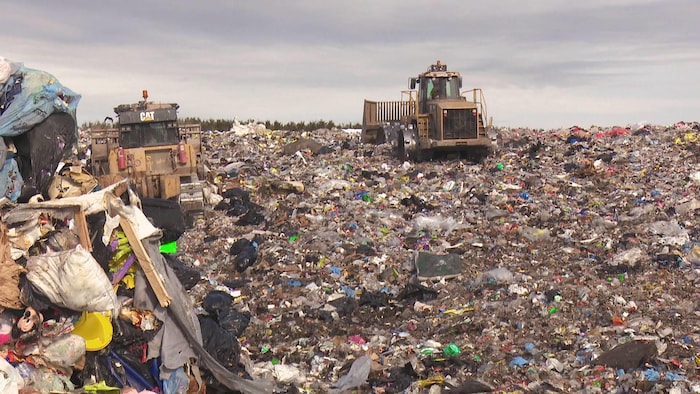Open full screen The Red Pine Landfill in Allardville, New Brunswick. (Archive photo) Agence France-Presse Two thirds more waste by 2050: the volume of waste in the world, at 2.3 billion tonnes in 2023, is expected to continue to grow exponentially, without action, with an impact massive for health and economies, warns the UN on Wednesday. At this rate, common waste (excluding industrial and construction waste) are expected to reach 3.8 billion tonnes by mid-century, surpassing the forecasts of the previous World Bank report on this theme. The crisis will be all the more acute as their growth is expected to be particularly marked in countries where their method of treatment remains polluting: landfills, open-air incineration (soil pollution, greenhouse gas emissions such as methane or pollutants like carbon soot). Despite efforts, little has changed, summarizes the new report produced by the United Nations Environment Program (UNEP). Humanity has even gone backwards, generating more waste […] Billions of people do not benefit from waste collection. If in rich countries the essentials are collected, the collection rate is less than 40% in low-income countries. Today, between 400,000 and one million people die each year from diseases linked to inappropriate waste management (diarrhea, malaria, cardiovascular pathologies, cancer), underlines the report published for the 6th session of the x27;United Nations Environment Assembly, held this week in Nairobi. Loading ELSE ON NEWS: Ottawa is on the wrong track by banning hacking devices, according to experts Waste left on the ground spreads pathogens, heavy metals and other endocrine disruptors into the soil and groundwater for a long time. Their open-air combustion releases persistent pollutants into the atmosphere. Organic waste that decomposes in landfills is responsible for 20% of human emissions of methane, the most warming of all greenhouse gases. If nothing is done, the direct and indirect cost of waste worldwide is expected to almost double to $640 billion annually by 2050, estimates this report, both a guide and a call for action. ;action. In 2020, the direct cost of waste treatment was estimated at $252 billion ($361 billion if we include indirect costs linked to pollution generated by unsuitable installations or management methods). There is an urgent need to begin a drastic reduction in litter and invest in the circular economy, calls the UN: We must act to avoid worst-case scenario. Many rapidly growing economies are struggling under the growing weight of waste, underlines UNEP Director Inger Andersen, pointing to the key role of public and private actors who can find opportunities to create more viable societies. Keeping waste under control, particularly through better treatment methods, could limit its net annual cost to $270 billion by 2050. But it is possible to go further, by moving towards a true circular economy, better industrial practices and comprehensive management residual waste, all of which could even generate a net gain of more than 100 billion dollars annually (energy generation, reuse, job creation, etc.), argues the report, entitled Transforming waste into resources. But among the obstacles, the authors still note a lack of recognition of this urgency: Political leaders must recognize the urgency of the crisis and its impacts on society, they insist.
Ottawa is on the wrong track by banning hacking devices, according to experts
The volume of waste around the world continues to grow

